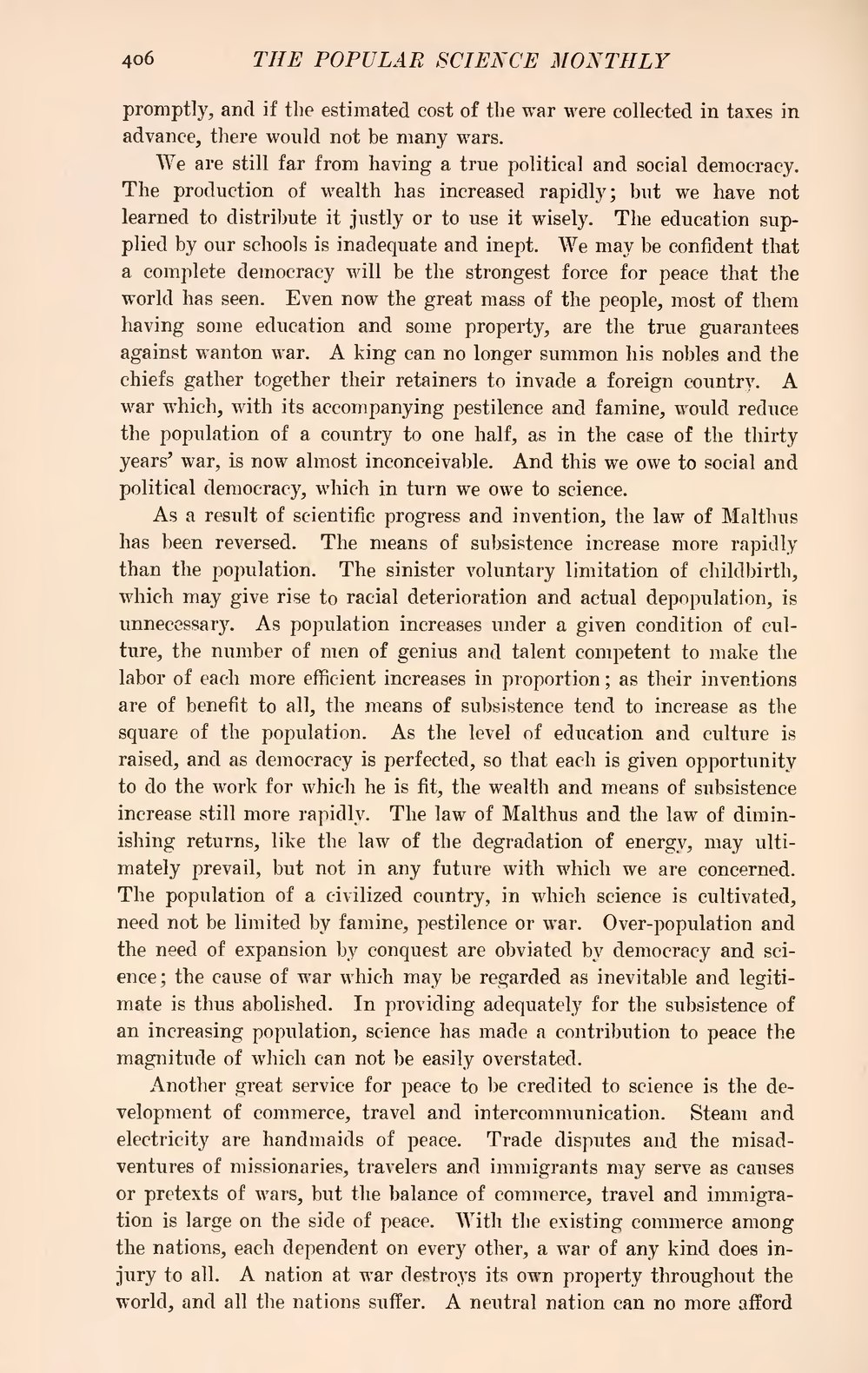promptly, and if the estimated cost of the war were collected in taxes in advance, there would not be many wars.
We are still far from having a true political and social democracy. The production of wealth has increased rapidly; but we have not learned to distribute it justly or to use it wisely. The education supplied by our schools is inadequate and inept. We may be confident that a complete democracy will be the strongest force for peace that the world has seen. Even now the great mass of the people, most of them having some education and some property, are the true guarantees against wanton war. A king can no longer summon his nobles and the chiefs gather together their retainers to invade a foreign country. A war which, with its accompanying pestilence and famine, would reduce the population of a country to one half, as in the case of the thirty years' war, is now almost inconceivable. And this we owe to social and political democracy, which in turn we owe to science.
As a result of scientific progress and invention, the law of Malthus has been reversed. The means of subsistence increase more rapidly than the population. The sinister voluntary limitation of childbirth, which may give rise to racial deterioration and actual depopulation, is unnecessary. As population increases under a given condition of culture, the number of men of genius and talent competent to make the labor of each more efficient increases in proportion; as their inventions are of benefit to all, the means of subsistence tend to increase as the square of the population. As the level of education and culture is raised, and as democracy is perfected, so that each is given opportunity to do the work for which he is fit, the wealth and means of subsistence increase still more rapidly. The law of Malthus and the law of diminishing returns, like the law of the degradation of energy, may ultimately prevail, but not in any future with which we are concerned. The population of a civilized country, in which science is cultivated, need not be limited by famine, pestilence or war. Over-population and the need of expansion by conquest are obviated by democracy and science; the cause of war which may be regarded as inevitable and legitimate is thus abolished. In providing adequately for the subsistence of an increasing population, science has made a contribution to peace the magnitude of which can not be easily overstated.
Another great service for peace to be credited to science is the development of commerce, travel and intercommunication. Steam and electricity are handmaids of peace. Trade disputes and the misadventures of missionaries, travelers and immigrants may serve as causes or pretexts of wars, but the balance of commerce, travel and immigration is large on the side of peace. With the existing commerce among the nations, each dependent on every other, a war of any kind does injury to all. A nation at war destroys its own property throughout the world, and all the nations suffer. A neutral nation can no more afford
